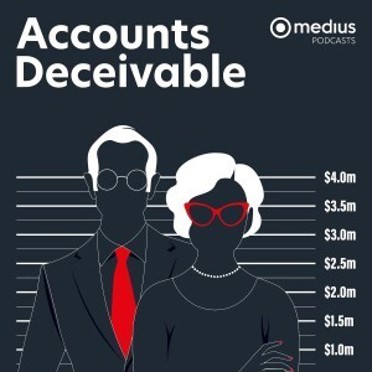Behind the Scenes of Deceit: The Menace of White-Collar Crime
According to new research from Medius and OnePoll, Americans are spotting a rise in attempted fraud as white-collar criminals up their game.
The survey findings reveal a commonality that a report released by the Federal Trade Commission in early 2023 already uncovered; an uptick in cases of fraud have led to consumers paying hefty sums. Specifically, data from the FTC showed that consumers reported losing nearly $8.8 billion to fraud in 2022, up 30% from the previous year. The report also found that the most common type of fraud in 2022 was imposter scams, which cost consumers $2.6 billion.
In this post, we will review the findings of the survey of America's experiences battling fraudsters and outline the next steps individuals and organizations can take to improve awareness to stay ahead of the evolving criminal tactics.
Fraud prevalence: scam emails, phone calls, and texts hit hard
Surveying 2,000 adults, the data reveals that scam emails (48%), phone calls (47%), and texts (44%) are the top fraud tactics tormenting Americans. These numbers expose the alarming frequency of fraudulent activities individuals face.


Rising perception of fraudulent activities
Nearly half (49%) of respondents have experienced a surge in fraudulent activities over the past year. This upward trend poses a significant threat to individuals and businesses, demanding immediate action to tackle and minimize risks.
Reporting challenges undermine detection and prevention
15% of participants confess they would likely ignore suspicious messages without reporting them to the police. Moreover, 64% admit uncertainty in reporting incidents or contacting the appropriate authorities. These reporting challenges hinder effective detection and prevention of white-collar crimes.


Doubts plague combat measures
A staggering 71% express skepticism about the effectiveness of reporting white-collar crimes to the police or relevant authorities. This highlights the deficiencies in the current judicial system's ability to combat offenses, demanding stronger and more comprehensive measures.
Fraud vs. Justice vs. Business
It isn’t easy to bring white-collar criminals to justice, so a business’s best bet is to prevent fraud in the first place.
Your customers are worried about fraud. And you should be.
49% of US adults have felt a rise in fraudulent activity in the past 12 months.

You can’t keep an eye on every invoice. So we will.
As a business, spotting and stopping fraud can save you massive amounts of money. Medius anomaly detection highlights fake and duplicate invoices and shows you when important details change, so you can verify who—and how much—you should be paying.
Source: Medius commissioned research conducted by OnePoll.
Business leaders need to empower, educate, and enforce to win the war against fraud.
In order to effectively tackle this issue in the digital age, individuals and organizations must take specific actions to create an environment where fraud is less prevalent, awareness is heightened, and fraudsters face greater challenges. To make this happen, business leaders need to be prepared to:
 Address reporting challenges
Address reporting challenges
It's crucial to overcome obstacles in reporting. Establish clear protocols for recognizing and promptly reporting suspicious activities. Provide employees with the necessary information on who to contact and effective documentation methods.
 Enhance awareness and education
Enhance awareness and education
Boost knowledge about common fraud tactics, such as scam emails, calls, and texts. Conduct engaging training programs to educate employees on identifying and responding to fraudulent activities.
 Advocate for stronger measures
Advocate for stronger measures
Support initiatives that strengthen laws and regulations related to white-collar crime. Urge for stricter penalties, enhanced oversight, and improved enforcement to deter potential fraudsters.
To learn more about how we are dedicated to combating fraud and protecting businesses and individuals from white-collar crime, check out the success stories, industry guides, and more on our resource page.
Or, pop your headphones in and listen to our new podcast series, Accounts Deceivable, on Apple Podcasts, Spotify, or your favorite podcast platform.







